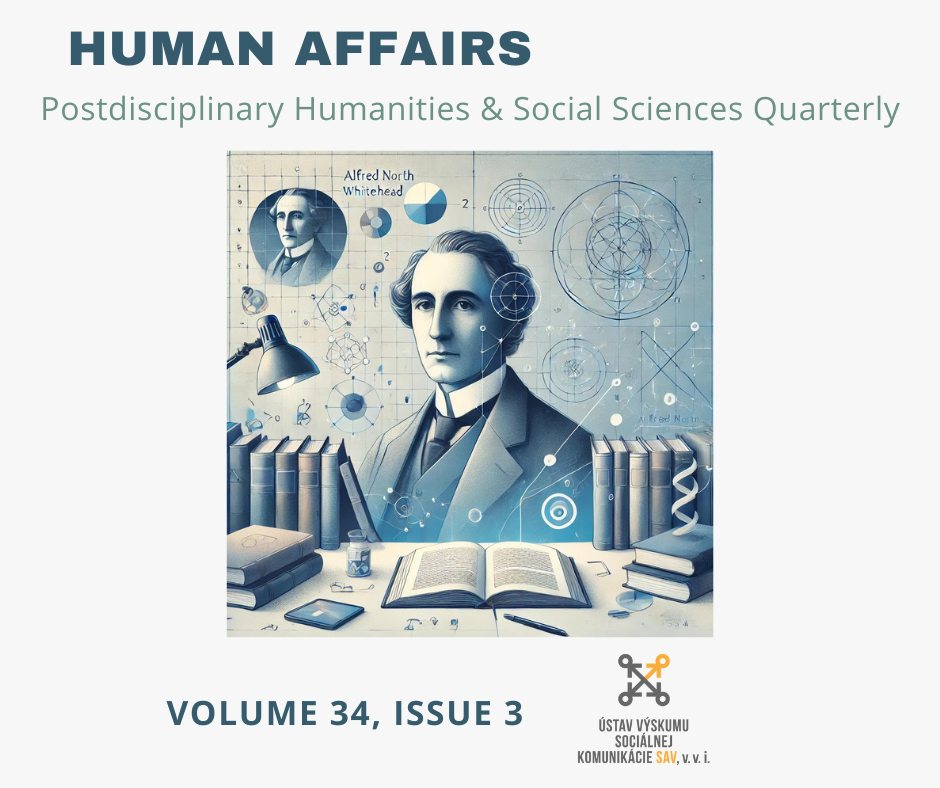Práve vyšlo číslo 3/2024 nášho časopisu Human Affairs venované Alfredovi Northovi Whiteheadovi.
Toto píše šéfredaktor Gabriel Bianchi vo svojom „vyznaní“ týkajúcom sa Whiteheada:
“I take the liberty to offer a short personal statement on my encounter with Whitehead and on the therapeutic effect it had on me. My discovery of Whitehead’s process ontology occurred recently, a few years ago. It was a kind of aha experience. Actually, it was more than that. An aha excitement follows finding a solution to a long-lasting problem. In my case, there was, however, a complete absence of awareness of a problem. Well, there WAS a lasting negative emotion, but it was a consequence of frustration, not a problem. This frustration came from the decades of my life spent in psychological research. Developing my understanding of the psychological and the multilayered tensions among diverse psychological streams, theories and epistemological advances of the 20th century – from the roots of the critical theory, via the linguistic turn, post/structuralism, social constructionism, the discursive paradigm etc., I was suffering a growing disgust towards all the reified concepts of mainstream psychology, their measurement and variance-analytically based predictions. And after almost 30 years of this efforts, thanks to Paul Stenner, I tripped over Whitehead’s process ontology (Brown, S.D., Stenner, P. , 2009. Psychology without foundations. History, Philosophy and Psychosocial Theory. OU Press). And it has resulted in my understanding not only of the key psychological ontology – the ontology of our becoming psychological subjects (Bianchi, G. , 2022: Figurations of human subjectivity. A contribution to second order psychology. Cham, Palgrave Macmillan) – but also the integral understanding of the interactions among five ontologies of the psychological – the body, the reified essentialist psychological concepts, the language and discourses, the contexts, and, finally, the human subjectivity = the process-ontological source of the psychological, of permanently becoming a subject.”
Ďakujeme skvelému Paulovi Stennerovi z The Open University, ktorý sa podieľal na príprave tohto čísla.
Časopis Human Affairs vychádza v spolupráci s Keele University a CEFRES.







